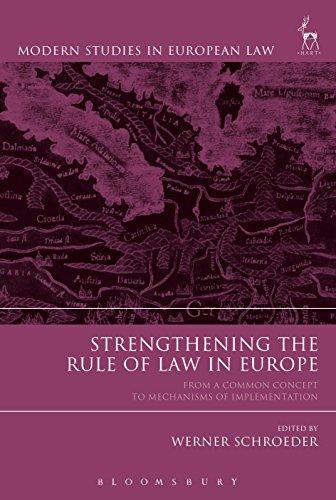Question
Goodlife produced frozen food products at its factory in Warrington. It had a multi-purpose fryer which it used to cook the food products which were
Goodlife produced frozen food products at its factory in Warrington. It had a multi-purpose fryer which it used to cook the food products which were subsequently frozen before being sold to customers, such as supermarkets. At the time of the contract with Hall Fire, its annual turnover was in the region of 2.7 million. Hall Fire had been trading since 1972 in the business of automatic fire sprinkler systems used in a variety of commercial, industrial and retail developments, with projects ranging in value from 1,000 to 1,000,000. They had their own standard terms and conditions. They were a company of a similar size to Goodlife, with an annual turnover of around 4.8 million.
Following a fire at their factory premises in Warrington on 25 May 2012, Goodlife commenced proceedings against Hall Fire for breach of contract and/or negligence in the supply and installation of a fire suppression system which Hall Fire had installed some ten years before. In their defence to the claim, Hall Fire sought to rely on clause 11 in their standard terms and conditions, excluding their liability for any part of Goodlife's claim for damages.
Two distinct issues were raised on this appeal. They can be summarised as follows: Was clause 11 particularly unusual and/or onerous and even if it was, was it fairly and reasonably brought to the attention of Goodlife? If clause 11 was incorporated into the contract, was it unreasonable (and therefore ineffective) as a result of the operation of the Unfair Contract Terms Act 1977? Clause 11 read as follows: "11) We exclude all liability, loss, damages or expense consequential or otherwise caused to your property, goods, persons or the like, directly or indirectly resulting from our negligence or delay or failure or malfunction of the systems or components provided by HFS for whatever reason. In the case of faulty components, we include only for the replacement, free of charge, of those defected parts. As an alternative to our basic tender, we can provide insurance to cover the above risks. Please ask for the extra cost of the provision of this cover if required." The value of the contract was 7,490. It is a commonplace that the cost of this sort of specific fire suppression system is often very modest, particularly when set against the losses that can arise if things go wrong. This case is no exception. The fire on 25 May 2012 is said to have originated at the fryer. It is Goodlife's case that the fire caused property damage and business interruption losses of about 6.6 million. They allege that the cause of the fire was a defect in the insulation of a compression joint on a dog-leg section of pipework on the top of the hood of the fryer. The pipework should have carried suppressant media to extinguish or suppress the fire, but failed to do so because the joint failed and separated. HELD - Appeal dismissed Clause 11 was fairly and reasonably brought to the attention of Goodlife; Goodlife ought reasonably to have known of the existence of the terms. Notice was fairly and reasonably given. That is another factor in favour of Hall Fire's case that clause 11 was reasonable in all the circumstances;
Clause 11 was not particularly onerous or unusual; Goodlife received no inducement to agree to clause 11. However, Goodlife could have gone elsewhere and found a supplier who was prepared to contract on a less stringent basis. That was therefore a factor in favour of Hall Fire's case that the clause was reasonable ; Clause 11 was therefore incorporated into the contract; An important pillar of English common and commercial law is party autonomy. Parties are free to contract on terms they choose, to allocate risks as they see fit - and the Court will enforce their bargains; Overall, this was a commercial contract between parties of broadly equal bargaining power. The Court should be slow to intervene in such a case, all the more so on an appeal. Cases referred to: George Mitchell (Chesterhall) Ltd v Finney Lock Seeds Ltd [1983] 2 A.C. 803; [1983] 3 W.L.R. 163; [1983] 2 All E.R. 737; [1983] 2 Lloyd's Rep. 272; [1983] Com. L.R. 209; HL; 30 June 1983 Photo Production Ltd v Securicor Transport Ltd [1980] A.C. 827; [1980] 2 W.L.R. 283; [1980] 1 All E.R. 556; [1980] 1 Lloyd's Rep. 545; (1980) 124 S.J. 147; HL; 14 February 1980 Thornton v Shoe Lane Parking [1971] 2 Q.B. 163; [1971] 2 W.L.R. 585; [1971] 1 All E.R. 686; [1971] 1 Lloyd's Rep. 289; [1971] R.T.R. 79; Times, December 19, 1970; (1970) 115 S.J. 75; CA (Civ Div); 18 December 1970 TEXT COURTESY OF Westlaw and the Crown
QUESTION
(a) Explain the meaning of the citation: [2018] EWCA Civ 1371
(b) What is the ratio decidendi of this case?
c) Which of the cases listed distinguished Goodlife v Hall Fire?
d) Explain the requirements of s.2 Unfair Contract Terms Act 1977 regarding the use of exclusion clauses in B2B contracts
(e) How would your answer differ if the UCTA 1977 did not apply to this B2B contract? (10 marks)
(f) How would your answer differ if this was a B2C contract instead?
Step by Step Solution
There are 3 Steps involved in it
Step: 1

Get Instant Access to Expert-Tailored Solutions
See step-by-step solutions with expert insights and AI powered tools for academic success
Step: 2

Step: 3

Ace Your Homework with AI
Get the answers you need in no time with our AI-driven, step-by-step assistance
Get Started


